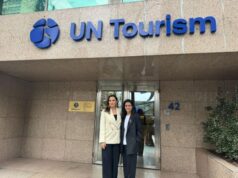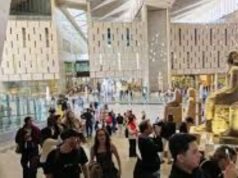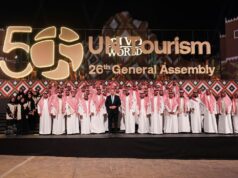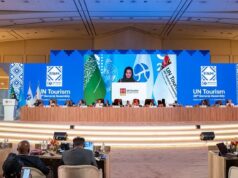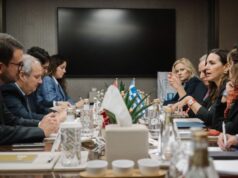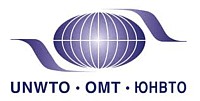 While tourism has enormous potential to contribute to development, it can only do so with adequate governance systems which empower people and communities – this was one of the main messages emerging from the UNWTO Algarve Forum (1-3 June, Vilamoura, Portugal).
While tourism has enormous potential to contribute to development, it can only do so with adequate governance systems which empower people and communities – this was one of the main messages emerging from the UNWTO Algarve Forum (1-3 June, Vilamoura, Portugal).
The Forum – intended to bridge theory and practice in tourism as an instrument for development and good governance – convened over 300 representatives from the private and public sector who were joined by prestigious academics to conclude several months of on-line discussion and establish a consensus on tourism strategies for the next decade and beyond.
“The world faces mounting changes and challenges which call for innovative strategies and policies. Governments, business and civil society need to devote attention to knowledge management in tourism, to better understand and act upon the forces shaping today’s world, especially on the critical issues of development, climate change and governance. We need to bring these players together in governance solutions; it’s possible and achievable,” said UNWTO Secretary-General, Taleb Rifai, opening the Forum.
On governance, the Forum stressed the significance of participation and efficiency. Institutions and stakeholders, whether in the public or private sector as well as those in civil society, need to take advantage of innovation, providing for the full use of networks and information-communication technologies. Cooperation and knowledge-based decisions are the basis of good governance.
The conclusions also highlighted the need to develop new indicators to measure the real effects of tourism on development and its impacts on climate change. These indicators should also provide for a better balance between the challenges of climate change and the use of tourism as an instrument for development.
The UNWTO Algarve Forum was organized by the UNWTO Knowledge Network with the able support of one of its most active members, the University of the Algarve. Participants agreed to establish a platform to carry forward the work initiated during the last few months within the UNWTO Knowledge Network and the Forum and build a community of knowledge on tourism; providing a framework of support for policy-making on development, governance and climate change goals. The results are to be translated into a set of guidelines and policy programmes known as the UNWTO Algarve Consensus.
UNWTO awards the 2011 Ulysses Prize and Awards
The 2011 UNWTO Ulysses Prize and Awards Ceremony took place during the Forum, rewarding initiatives and projects of excellence undertaken by public tourism institutions, tourism enterprises and non-profit institutions that have made a significant contribution to the advancement of tourism through innovation.
The awardees showcase some of the best examples of tourism projects from around the world that are improving the positive social impact of the sector.
The UNWTO Ulysses Prize was awarded to Professor Kaye Chon, Dean and Chair Professor of the School of Hotel and Tourism Management at the Hong Kong Polytechnic University, for his outstanding contribution to tourism knowledge.
UNWTO Secretary-General awarded Honoris Causa doctorate by the University of Algarve
UNWTO Secretary-General, Taleb Rifai, has been awarded a Honoris Causa doctorate by the University of Algarve (1 June 2011). In his acceptance speech, Mr. Rifai stressed that the doctorate was recognition of the role of UNWTO and that of tourism in creating a better world. “By honouring me, you are recognizing the central role tourism has come to play in the lives of millions around the world,” he said. ”This gives me further responsibility to continue working to position our sector as an important tool for global prosperity and wellbeing. To promote its economic and social value; the millions of jobs it provides; the development opportunities it creates; and the links it builds among people around the world”.


